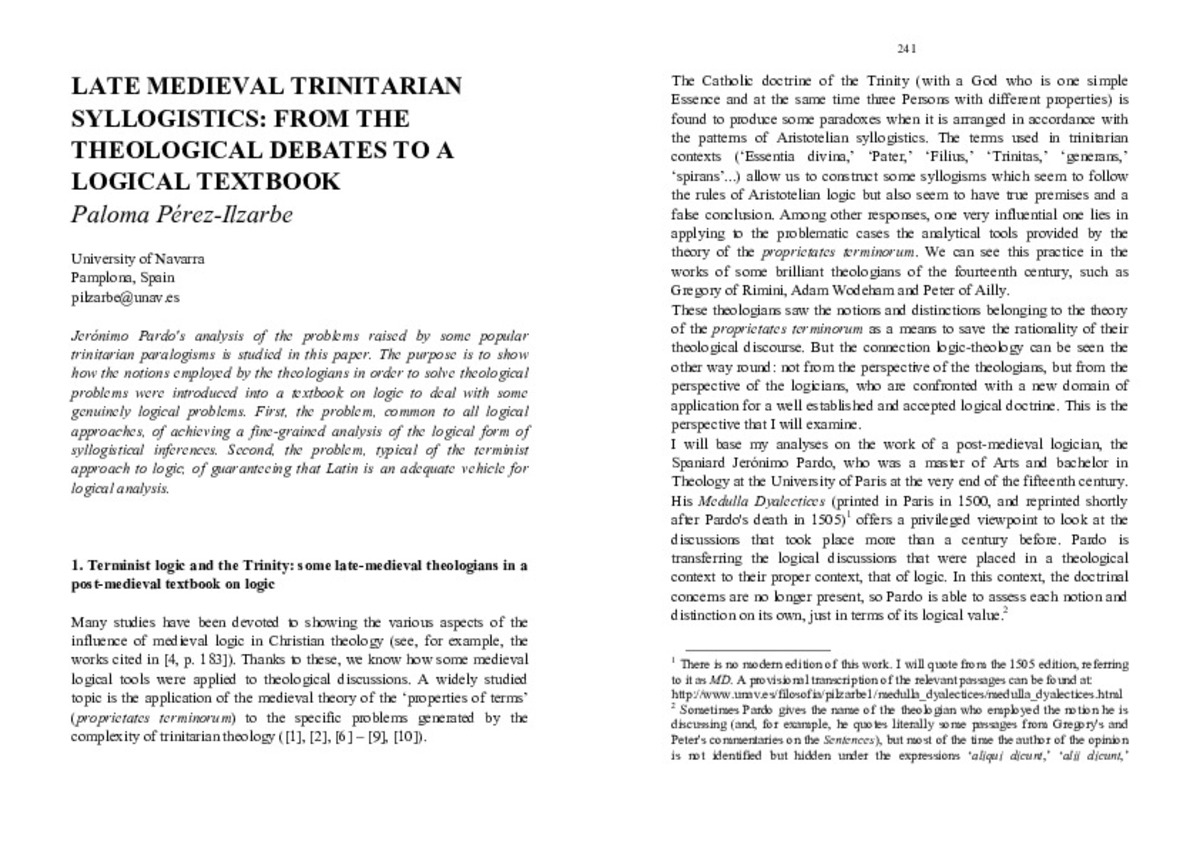Full metadata record
| DC Field | Value | Language |
|---|---|---|
| dc.creator | Pérez-Ilzarbe, P. (Paloma) | |
| dc.date.accessioned | 2011-03-02T10:36:56Z | - |
| dc.date.available | 2011-03-02T10:36:56Z | - |
| dc.date.issued | 2009 | - |
| dc.identifier.citation | Logic in Religious Discourse (A. Schumann, ed.), Ontos Verlag, Heusenstamm bei Frankfurt, 2009, 240-261 | - |
| dc.identifier.isbn | 978-3-86838-061-3 | - |
| dc.identifier.uri | https://hdl.handle.net/10171/16776 | - |
| dc.description.abstract | Jerónimo Pardo's analysis of the problems raised by some popular trinitarian paralogisms is studied in this paper. The purpose is to show how the notions employed by the theologians in order to solve theological problems were introduced into a textbook on logic to deal with some genuinely logical problems. First, the problem, common to all logical approaches, of achieving a fine-grained analysis of the logical form of syllogistical inferences. Second, the problem, typical of the terminist approach to logic, of guaranteeing that Latin is an adequate vehicle for logical analysis. | es_ES |
| dc.language.iso | eng | es_ES |
| dc.rights | info:eu-repo/semantics/openAccess | es_ES |
| dc.subject | Materias Investigacion::Arte y Humanidades::Filosofía | es_ES |
| dc.title | Late Medieval Trinitarian Syllogistics: From the Theological Debates to a Logical Textbook | es_ES |
| dc.type | info:eu-repo/semantics/bookPart | es_ES |
Files in This Item:
Statistics and impact
Items in Dadun are protected by copyright, with all rights reserved, unless otherwise indicated.






